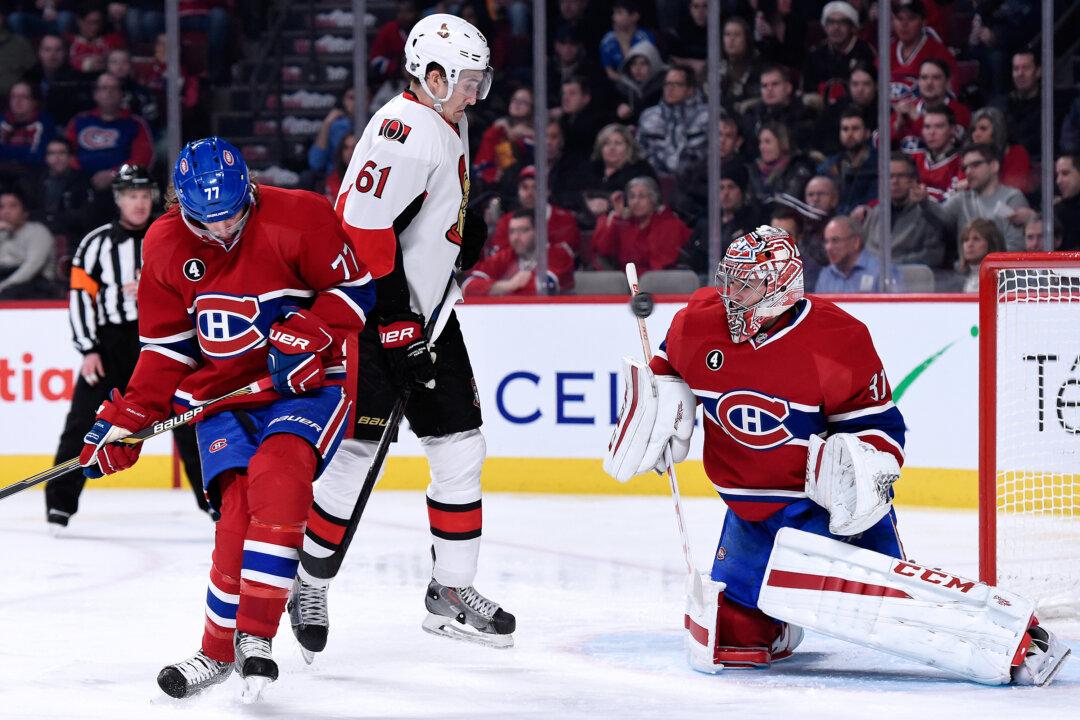The Montreal Canadiens’ reward for the second best record in the NHL is a rivalry renewal against the Ottawa Senators, the league’s hottest team in the last two months of the regular season.
The Sens dominated the season series against the Habs, winning three of four games, but only one of those games—a 5–2 Ottawa win on March 12—featured the “revamped” Senators facing Canadiens goalie Carey Price.
The latter is the matchup that will feature in the first round series. Here are three keys to understanding the series:
1. Pacioretty’s Health
Max Pacioretty is a huge part of Montreal’s goalscoring. His 37 goals represented 16.7 percent of Montreal’s scoring. Their next best goalscorer, Tomas Plekanec, scored 11.7 percent of Montreal’s goals, which shows how big Pacioretty’s contribution rates. By contrast, Mike Hoffman, Mark Stone, and Kyle Turris scored 11.3, 10.9, and 10.1 percent of Ottawa’s goals, respectively.
Goalscoring is Montreal’s biggest weakness and they need their top sniper to be at his best. The Habs are tied with Pittsburgh for the fewest goals scored of any team that made the playoffs.
Pacioretty didn’t play in the Habs’ last two regular season games after falling heavily into the boards in a game against Florida on April 5.
But it’s not just goalscoring where Pacioretty excels; he’s a great two-way forward and tied for the league lead in +/- at +38. In five-on-five play, which is typically more prevalent in playoff hockey as fewer penalties seem to be called, not having Pacioretty fully fit could be an even bigger loss for Montreal.
2. Can Hammond Keep It Up?
To think of Montreal as the No. 2 seed against Ottawa as the No. 7 seed is misleading when one considers that with Ottawa, it’s been a tale of two “half-seasons.”
Who the Sens were prior to Andrew Hammond is irrelevant. Hammond is one of the NHL’s top stories of 2015 with his 20–1–2 record in 23 starts.





